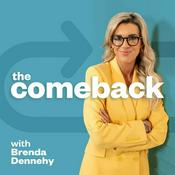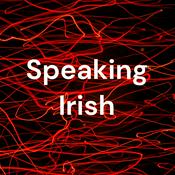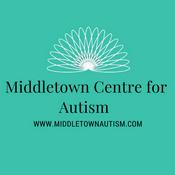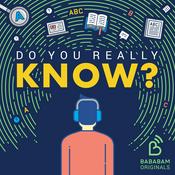89 episodes
Episode 35, Season 2: Balancing Career and Family for Working Moms w/ guest Rebecca Olson
27/1/2026 | 55 mins.In this episode of The Love Doc Podcast, Dr. Sarah Hensley and co-host Raina Butcher are joined by Rebecca Olson, a certified life coach specializing in working moms, mental health, and work–life balance. Together, they explore the psychological and emotional challenges that arise when women transition into motherhood while maintaining ambitious careers.
Through a psychology-based and relationship-focused lens, the conversation covers time management, identity shifts, attachment dynamics, boundaries, burnout, and redefining success during different seasons of life. Rebecca shares practical tools for protecting mental health, strengthening relationships, and reducing guilt and overwhelm—especially for high-achieving women navigating motherhood, partnership, and personal growth.
This episode is ideal for working moms, professionals, parents, and anyone interested in mental health, relationships, and personal development.
Be sure to check out Rebecca's services as well as Dr. Hensley's in the links below.
Bio
Rebecca is an international life coach and podcast host who helps career-focused parents stop feeling overwhelmed and "not enough" so they can be present with their kids while crushing their career goals. Through her coaching programs and podcast, Ambitious and Balanced Working Moms, Rebecca has helped thousands of parents learn to feel confident in who they are, what they want and the value they bring to their company and family. She teaches an inside- out approach to creating work-life balance that gives individuals 100% control over their time, energy and success. Rebecca is known for straight-talking and big earrings. She lives in the San Francisco Bay Area with her husband and two kiddos. When not coaching or speaking, she loves playing ultimate frisbee and drinks lots of tea.
LinkedIn: https://www.linkedin.com/in/rebolson/
Instagram: https://www.instagram.com/rebeccaolsoncoach
Website: https://www.rebeccaolsoncoaching.com/
Podcast: https://www.rebeccaolsoncoaching.com/podcast
Facebook: https://www.facebook.com/rebeccaolsoncoaching
Freebie
The Working Mom’s Daily Kickstart: A simple morning practice to stay ahead of stress and overwhelm – so you feel in control of your time, your mindset, and your priorities. https://www.ambitiousandbalanced.com/daily-kickstart
Tune in to The Love Doc Podcast every Tuesday morning for candid conversations, expert insights, and the guidance you need to navigate love and relationships in today’s world. For more information on Dr. Hensley’s offerings, explore the links below and connect with her on social media.
Patreon link: patreon.com/TheLoveDocPodcast
Dr. Hensley’s Hybrid Group Coaching: https://courses.thelovedoc.com/group-coaching
Book one on one with Dr. Hensley or one of her certified coaches: Virtual Coaching
Purchase Dr. Hensley’s online courses: https://courses.thelovedoc.com/courses
Tik-Tok: @drsarahhensley
Instagram: @dr.sarahhensley_lovedoc
Facebook: Dr. Sarah Hensley
Youtube: @Dr.SarahHensley
Disclaimer: The content shared on this podcast reflects personal experiences, opinions, and perspectives. The stories told are based on real-life events as remembered and interpreted by the hosts and guests. While we may discuss past relationships, custody matters, or personal dynamics, we do so from our point of view and with the intention of healing, education, and advocacy.
Identities are not disclosed unless already publicly known or permitted, and any resemblance to actual persons, living or dead, is purely coincidental unless explicitly stated. The information provided is not intended to defame, malign, or harm any individual or entity.
We do not offer legal advice or psychological diagnosis. Listeners are encouraged to consult with professionals regarding their specific circumstances.
By listening to this podcast, you agree that the hosts are not liable for any losses, damages, or misunderstandings arising from its content.
Become a supporter of this podcast: https://www.spreaker.com/podcast/the-love-doc-podcast--6390558/support.- In this week's episode, host Dr. Sarah Hensley and co-host Raina Butcher discuss the dangers and uselessness of something we're all guilty of - complaining.
Drawing from the teachings and knowledge of one of her most influential mentors, Dr. Suzanne Segerstrom, Dr. Sarah delves into the reasons we complain, the ways the brain can be positively or negatively re-wired through repetitive thought, and the detrimental psychological and even physiological manifestations of complaining, worrying, and negative thought.
Tune in to The Love Doc Podcast every Tuesday morning for candid conversations, expert insights, and the guidance you need to navigate love and relationships in today’s world. For more information on Dr. Hensley’s offerings, explore the links below and connect with her on social media.
Patreon link: patreon.com/TheLoveDocPodcast
Dr. Hensley’s Hybrid Group Coaching: https://courses.thelovedoc.com/group-coaching
Book one on one with Dr. Hensley or one of her certified coaches: Virtual Coaching
Purchase Dr. Hensley’s online courses: https://courses.thelovedoc.com/courses
Tik-Tok: @drsarahhensley
Instagram: @dr.sarahhensley_lovedoc
Facebook: Dr. Sarah Hensley
Youtube: @Dr.SarahHensley
Disclaimer: The content shared on this podcast reflects personal experiences, opinions, and perspectives. The stories told are based on real-life events as remembered and interpreted by the hosts and guests. While we may discuss past relationships, custody matters, or personal dynamics, we do so from our point of view and with the intention of healing, education, and advocacy.
Identities are not disclosed unless already publicly known or permitted, and any resemblance to actual persons, living or dead, is purely coincidental unless explicitly stated. The information provided is not intended to defame, malign, or harm any individual or entity.
We do not offer legal advice or psychological diagnosis. Listeners are encouraged to consult with professionals regarding their specific circumstances.
By listening to this podcast, you agree that the hosts are not liable for any losses, damages, or misunderstandings arising from its content.
Become a supporter of this podcast: https://www.spreaker.com/podcast/the-love-doc-podcast--6390558/support. - Join us this week as host Dr. Sarah Hensley and co-host Raina Butcher explore what it truly means to cultivate secure energy as we move into 2026. Secure energy is built through clear boundaries, self-trust, and authentic self-expression.
Dr. Hensley discusses how securely attached individuals establish and maintain boundaries without guilt, show up authentically and unapologetically themselves, and lead with respect and compassion while also maintaining their own integrity. The episode also addresses the often-misunderstood topic of looking good—not as a sign of vanity, but as a way of showing self-respect and discipline.
Secure energy comes from acting in ways that reflect your values, even when it risks disappointment or disconnection. By understanding what secure behavior patterns look like, listeners can learn how to stop performing for acceptance and start showing up as their real selves—grounded, regulated, and relationally sound. This episode offers a practical roadmap for embodying secure energy in daily life, relationships, and self-image as we step into 2026 with clarity and confidence.
Tune in to The Love Doc Podcast every Tuesday morning for candid conversations, expert insights, and the guidance you need to navigate love and relationships in today’s world. For more information on Dr. Hensley’s offerings, explore the links below and connect with her on social media.
COVE promo code: LOVEDOC for 10% off at covesmart.com
Patreon link: patreon.com/TheLoveDocPodcast
Dr. Hensley’s Hybrid Group Coaching: https://courses.thelovedoc.com/group-coaching
Book one on one with Dr. Hensley or one of her certified coaches: Virtual Coaching
Purchase Dr. Hensley’s online courses: https://courses.thelovedoc.com/courses
Tik-Tok: @drsarahhensley
Instagram: @dr.sarahhensley_lovedoc
Facebook: Dr. Sarah Hensley
Youtube: @Dr.SarahHensley
Disclaimer: The content shared on this podcast reflects personal experiences, opinions, and perspectives. The stories told are based on real-life events as remembered and interpreted by the hosts and guests. While we may discuss past relationships, custody matters, or personal dynamics, we do so from our point of view and with the intention of healing, education, and advocacy.
Identities are not disclosed unless already publicly known or permitted, and any resemblance to actual persons, living or dead, is purely coincidental unless explicitly stated. The information provided is not intended to defame, malign, or harm any individual or entity.
We do not offer legal advice or psychological diagnosis. Listeners are encouraged to consult with professionals regarding their specific circumstances.
By listening to this podcast, you agree that the hosts are not liable for any losses, damages, or misunderstandings arising from its content.
Become a supporter of this podcast: https://www.spreaker.com/podcast/the-love-doc-podcast--6390558/support. - Episode 32 of the Love Doc Podcast focuses specifically on the dismissive avoidant woman. Dr. Hensley begins by clarifying that attachment style itself is not gender specific—men and women develop dismissive avoidance for the same core reasons rooted in early emotional neglect, premature independence, or caregivers who discouraged emotional expression. However, while the wound is the same, the expression can look different in women due to socialization and relational roles. Research consistently shows dismissive avoidants learned early that vulnerability was unsafe or unnecessary, leading them to rely heavily on self-sufficiency and emotional distance in adulthood, particularly inside romantic relationships.
What makes the dismissive avoidant woman distinct is how that avoidance often shows up through caretaking and distraction rather than work or hobbies alone. While many dismissive avoidants become workaholics or hobby-driven, dismissive avoidant women commonly hyper-fixate on their children—becoming deeply intertwined in their kids’ schedules, activities, and identities, often using parenting as a socially acceptable way to avoid marital intimacy. Dr. Hensley also addresses sexuality, noting that dismissive avoidant women are frequently less interested in sex with their partners and will use stress, exhaustion, parenting demands, or busyness to avoid intimacy, because intimacy equals vulnerability. While dismissive avoidance looks similar across genders at its core, this episode highlights the specific nuances that tend to appear in women—and how those patterns quietly impact romantic connection over time.
Tune in to The Love Doc Podcast every Tuesday morning for candid conversations, expert insights, and the guidance you need to navigate love and relationships in today’s world. For more information on Dr. Hensley’s offerings, explore the links below and connect with her on social media.
Patreon link: patreon.com/TheLoveDocPodcast
Dr. Hensley’s Hybrid Group Coaching: https://courses.thelovedoc.com/group-coaching
Book one on one with Dr. Hensley or one of her certified coaches: Virtual Coaching
Purchase Dr. Hensley’s online courses: https://courses.thelovedoc.com/courses
Tik-Tok: @drsarahhensley
Instagram: @dr.sarahhensley_lovedoc
Facebook: Dr. Sarah Hensley
Youtube: @Dr.SarahHensley
Disclaimer: The content shared on this podcast reflects personal experiences, opinions, and perspectives. The stories told are based on real-life events as remembered and interpreted by the hosts and guests. While we may discuss past relationships, custody matters, or personal dynamics, we do so from our point of view and with the intention of healing, education, and advocacy.
Identities are not disclosed unless already publicly known or permitted, and any resemblance to actual persons, living or dead, is purely coincidental unless explicitly stated. The information provided is not intended to defame, malign, or harm any individual or entity.
We do not offer legal advice or psychological diagnosis. Listeners are encouraged to consult with professionals regarding their specific circumstances.
By listening to this podcast, you agree that the hosts are not liable for any losses, damages, or misunderstandings arising from its content.
Become a supporter of this podcast: https://www.spreaker.com/podcast/the-love-doc-podcast--6390558/support. Episode 31, Season 2: Beyond the Noise: Empathy in the Midst of Tragedy — Dr. Hensley on Erika Kirk’s Journey
30/12/2025 | 28 mins.In this week’s episode of The Love Doc Podcast, Dr. Hensley addresses the intense public scrutiny and speculation surrounding Erika Kirk following the tragic death of her husband, Charlie Kirk. Rather than engaging in political debate, Dr. Hensley centers the conversation on the human cost of grief lived in the public eye — the emotional toll of watching children struggle to understand the loss of their father, the burden of mourning while being scrutinized, and the cruelty of internet culture that often confuses speculation with truth.
Dr. Hensley also explores the broader cultural issue of conspiracy thinking and outrage-driven media, including accusations and narratives amplified for clicks — notably those promoted by figures such as Candace Owens. This episode is ultimately a call back to our shared humanity, reminding listeners that empathy should not be conditional upon political alignment. At its core, this conversation challenges us to pause, soften, and recognize that behind every headline is a grieving family still learning how to survive an unimaginable loss.
Tune in to The Love Doc Podcast every Tuesday morning for candid conversations, expert insights, and the guidance you need to navigate love and relationships in today’s world. For more information on Dr. Hensley’s offerings, explore the links below and connect with her on social media.
Patreon link: patreon.com/TheLoveDocPodcast
Dr. Hensley’s Hybrid Group Coaching: https://courses.thelovedoc.com/group-coaching
Book one on one with Dr. Hensley or one of her certified coaches: Virtual Coaching
Purchase Dr. Hensley’s online courses: https://courses.thelovedoc.com/courses
Tik-Tok: @drsarahhensley
Instagram: @dr.sarahhensley_lovedoc
Facebook: Dr. Sarah Hensley
Youtube: @Dr.SarahHensley
Disclaimer: The content shared on this podcast reflects personal experiences, opinions, and perspectives. The stories told are based on real-life events as remembered and interpreted by the hosts and guests. While we may discuss past relationships, custody matters, or personal dynamics, we do so from our point of view and with the intention of healing, education, and advocacy.
Identities are not disclosed unless already publicly known or permitted, and any resemblance to actual persons, living or dead, is purely coincidental unless explicitly stated. The information provided is not intended to defame, malign, or harm any individual or entity.
We do not offer legal advice or psychological diagnosis. Listeners are encouraged to consult with professionals regarding their specific circumstances.
By listening to this podcast, you agree that the hosts are not liable for any losses, damages, or misunderstandings arising from its content.
Become a supporter of this podcast: https://www.spreaker.com/podcast/the-love-doc-podcast--6390558/support.
More Education podcasts
Trending Education podcasts
About The Love Doc Podcast
The Love Doc Podcast is a relationship and attachment podcast hosted by Dr. Sarah Hensley, social psychologist, attachment theory expert, and Founder & CEO of The Love Doc Relationship Coaching Services, alongside co-host Raina Butcher. This podcast explores love, attachment styles, anxious attachment, avoidant attachment, attraction, communication, emotional intimacy, relationship anxiety, self-awareness, and healing relationship patterns. Dr. Hensley breaks down the psychology behind modern relationships using attachment theory, social psychology, and real-world relationship coaching experience.Each episode answers common questions about why relationships feel hard, why we choose the partners we do, how attachment wounds form, and how to build emotional safety, secure attachment, and healthier communication. Listeners will gain practical relationship tools, mindset shifts, and psychological insight to help navigate dating, long-term relationships, breakups, and personal growth.Whether you’re struggling with anxious attachment, fear of abandonment, avoidant partners, relationship burnout, or emotional disconnect, The Love Doc Podcast offers clarity, validation, and actionable guidance to help you understand yourself and create more fulfilling relationships.Become a supporter of this podcast: https://www.spreaker.com/podcast/the-love-doc-podcast--6390558/support.
Podcast websiteListen to The Love Doc Podcast, Gaeilge Weekly and many other podcasts from around the world with the radio.net app

Get the free radio.net app
- Stations and podcasts to bookmark
- Stream via Wi-Fi or Bluetooth
- Supports Carplay & Android Auto
- Many other app features
Get the free radio.net app
- Stations and podcasts to bookmark
- Stream via Wi-Fi or Bluetooth
- Supports Carplay & Android Auto
- Many other app features


The Love Doc Podcast
Scan code,
download the app,
start listening.
download the app,
start listening.


























